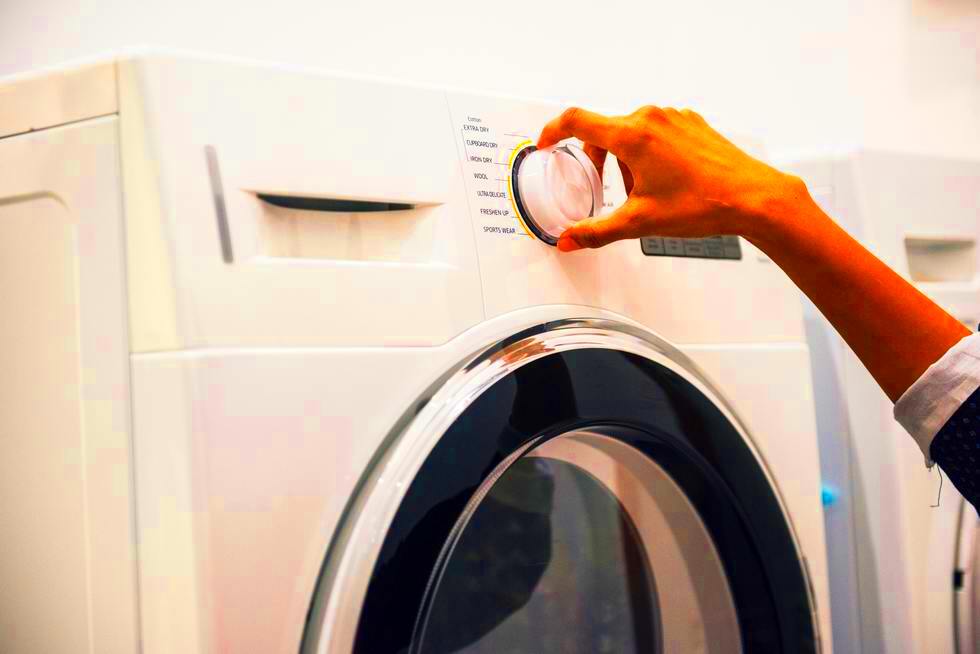What You Should Know About Appliance Lemon Laws
Have you ever purchased a shiny new device only to have it constantly malfunction? It can be quite exasperating, can’t it? That’s where appliance lemon laws come into the picture. These regulations aim to safeguard consumers against defective products that fail to meet their promises. If you’ve encountered problems with an appliance you might find solace in knowing that there are legal options at your disposal. In this article we will explore what these laws entail and how they can assist you in securing a fair deal. Consider it as your comprehensive guide to comprehending and maneuvering through these protective measures.
What Constitutes a Lemon Appliance?

- Repeated Repairs: The appliance has undergone multiple repair attempts for the same issue without success.
- Significant Defects: The defect affects the appliance’s ability to function properly or poses safety risks.
- Timeframe: The issues arise within a specific period, usually within the warranty or guarantee period.
Lets say you purchase a washing machine that keeps malfunctioning every few months despite multiple repairs. If this problem persists even after several repair attempts your washing machine may be considered defective according to the law.
Key Features of Appliance Lemon Laws
Lemon laws for appliances have several key features aimed at making sure you dont end up stuck with a defective item. While these laws differ slightly from state to state they generally have elements in common.
- Repair Attempts: There’s often a requirement for a certain number of repair attempts to be made before the appliance is deemed a lemon.
- Replacement or Refund: If an appliance is declared a lemon, you may be entitled to a replacement or a full refund.
- Warranty Period: The defect must usually occur within the warranty period to qualify for lemon law protection.
- Documentation: Keeping detailed records of repairs, communications with the manufacturer, and receipts is crucial for making a successful claim.
Imagine you have a fridge that just won’t keep things cool no matter how many times you fix it. If your state has lemon laws they could give you a new fridge or your money back based on the details of the case. The idea is to protect consumers from dealing with products and to make sure they receive fair compensation for their inconvenience.
How to File a Lemon Law Claim for Appliances
- Document Everything: Start by keeping detailed records of the appliance’s defects, repair attempts, and any correspondence with the manufacturer. Photos and repair invoices are invaluable here.
- Contact the Manufacturer: Notify the manufacturer or retailer about the defect. They usually have a formal procedure for handling such claims. Make sure to follow their instructions carefully.
- Give the Manufacturer a Chance to Fix It: Most lemon laws require that you allow the manufacturer a reasonable number of repair attempts. Ensure you keep track of each attempt.
- Seek Legal Advice: If the manufacturer doesn’t resolve the issue, it might be time to consult with a lemon law attorney. They can guide you through the legal process and help strengthen your case.
- File a Claim: With all your documentation and legal advice in hand, you can formally file your claim. This usually involves submitting a complaint to the appropriate consumer protection agency or court.
Once I assisted a friend in fixing a lemon dishwasher. Despite numerous unsuccessful repair tries and ongoing communication with the company we ultimately sought the help of a lawyer who streamlined the process significantly. It was quite reassuring to witness the claim being settled in their favor.
What to Expect During the Claim Process
After submitting a lemon law claim you may find yourself curious about the next steps. The procedure can be protracted and at times challenging but having an understanding of what to anticipate can alleviate your concerns.
- Initial Review: Your claim will be reviewed by the manufacturer or their representative. They’ll assess the documentation you provided and may request additional information.
- Negotiations: Often, there will be a negotiation phase where you and the manufacturer discuss possible resolutions. This could involve a replacement appliance or a refund.
- Formal Hearing or Mediation: If negotiations don’t lead to a satisfactory outcome, you may need to attend a formal hearing or mediation. This is where a legal professional presents your case and helps you argue for your rights.
- Resolution: If your claim is successful, you’ll receive a resolution which might be a replacement appliance, a refund, or another form of compensation as per the law.
Drawing from my personal journey I recall the sense of relief that comes with reaching a fair outcome after an arduous and lengthy ordeal. It was as if a burden was eased once everything was settled and I genuinely wish you the same level of triumph in your own path.
Common Issues Covered by Appliance Lemon Laws
Lemon laws for appliances aim to tackle various problems that can arise when dealing with a faulty product. Let’s explore some of the issues that these laws typically address.
- Mechanical Failures: Frequent breakdowns or operational failures that affect the appliance’s functionality.
- Safety Concerns: Defects that pose safety risks, such as electrical hazards or fire risks.
- Performance Issues: The appliance doesn’t perform as expected, even after repairs. For instance, a refrigerator that doesn’t keep food cold despite multiple fixes.
- Warranty Violations: Issues arising within the warranty period that the manufacturer fails to address adequately.
For instance a friend had a microwave that would occasionally malfunction. Even after multiple fixes the issue continued to occur. In their situation the lemon law addressed the recurring failures resulting in a successful replacement of the appliance. These regulations play a role in protecting consumers from being stuck with defective products that interfere, with their everyday routines.
How Appliance Lemon Laws Vary by State
Lemon laws for appliances can vary significantly between states making it crucial to be aware of the regulations specific to your area. Each state has its own guidelines and criteria for defining a lemon and managing claims. Lets take a look at the differences in these laws.
- Definition of a Lemon: While most states define a lemon as an appliance with recurring defects that impair its use, the exact criteria can differ. Some states may have stricter standards than others.
- Repair Attempts: The number of repair attempts required before an appliance is deemed a lemon can vary. For example, California might require four attempts, while Texas might only need two.
- Time Limits: The period within which a defect must be reported can vary. Some states have shorter time frames, while others may allow more time for defects to be reported and addressed.
- Compensation: The remedies available—such as a replacement, refund, or repair—can differ. Some states might offer more generous compensation options based on the severity of the issue.
For example when I encountered a malfunctioning air conditioner in Florida I discovered that the lemon laws in that state had different criteria than those in New York. Grasping these subtleties assisted in customizing the strategy for the claim making the procedure more seamless.
Tips for Dealing with Lemon Appliances
Handling a faulty appliance can be quite frustrating, however with some helpful suggestions you can navigate the situation more smoothly.
- Keep Detailed Records: Document every issue, repair attempt, and communication with the manufacturer. This documentation is crucial if you need to file a claim.
- Follow Up Regularly: Stay on top of the repair process. Regular follow-ups ensure that your concerns are addressed in a timely manner.
- Understand Your Warranty: Know the terms of your appliance’s warranty, including what it covers and the duration. This knowledge can help you leverage your rights effectively.
- Consult with Experts: If the process becomes overwhelming, consider consulting a lemon law attorney. They can provide valuable guidance and advocate on your behalf.
- Be Persistent: It’s important to remain patient and persistent throughout the process. Sometimes, it takes multiple attempts to resolve the issue satisfactorily.
Based on what I went through I realized the importance of maintaining records. When I encountered issues with a dishwasher I discovered that having comprehensive documentation played a crucial role in reaching a satisfactory outcome.
FAQ about Appliance Lemon Laws
Got inquiries regarding appliance lemon laws? You’re in good company. Here are a few frequently asked questions and their responses:
- What qualifies as a lemon appliance? An appliance is generally considered a lemon if it has a defect that impairs its use or safety and remains unresolved after a reasonable number of repair attempts.
- How many repair attempts are required? This varies by state. For example, some states may require three to four attempts for the same defect before the appliance is considered a lemon.
- Can I get a refund or replacement? Yes, typically you can choose between a refund or a replacement. The specific remedy depends on state laws and the terms of your warranty.
- What should I do if the manufacturer refuses to cooperate? If the manufacturer is unresponsive or refuses to fix the issue, you may need to escalate the matter by consulting a lemon law attorney or filing a formal complaint.
- Does lemon law cover used appliances? In most cases, lemon laws apply to new appliances. Coverage for used appliances varies, and it’s important to check your state’s specific regulations.
Handling faulty appliances can be a challenge, but with the information you can approach the situation more confidently. Keep in mind that you’re not in this alone and there are safeguards to ensure you’re treated justly.
Conclusion
Navigating appliance lemon laws can be tricky, but knowing your rights and understanding these regulations can really make a difference. Whether you’re dealing with a frustratingly faulty fridge or a troublesome washing machine, these laws are here to protect you and ensure you don’t end up stuck with a product that doesn’t live up to expectations. Being informed about how to file a claim and what issues are typically covered can empower you to take steps towards a resolution. After all it’s about getting the value and functionality you paid for sometimes a little persistence and patience can lead to an outcome. If you ever find yourself unsure consulting a professional can help you navigate the process smoothly. Don’t let a lemon appliance ruin your experience; use the resources and knowledge at your disposal to turn things around.


